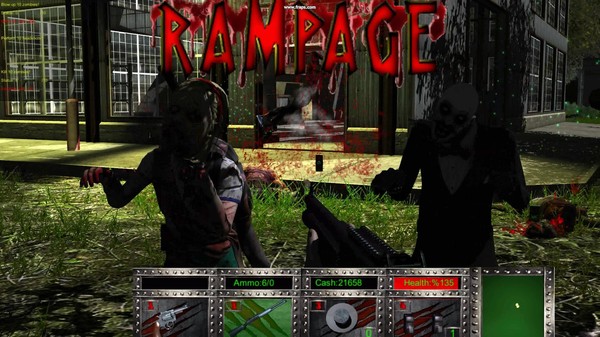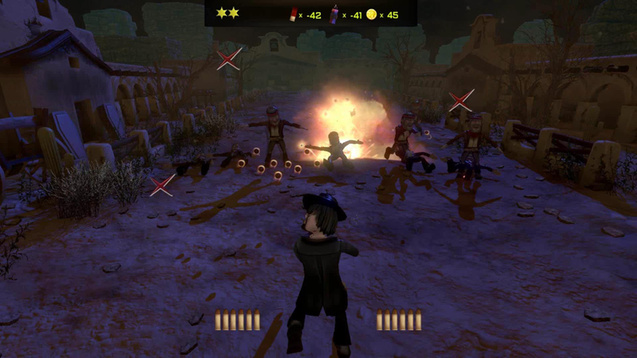In the latest chapter of video game critic against game developer, we see the renewal of Jim Sterling versus indie company, Digital Homicide. After getting threats of being sued in the past, Sterling finally received a lawsuit last week from the embattled company. A story that began with a developer that couldn’t accept criticism for a poorly-constructed game has managed to tack on another sad layer, and it’s time for everyone involved at DigiHom to not only move on with their life, but to get out of the gaming industry altogether.
Digital Homicide, headed by two brothers, Robert and James Romine, is looking for over $10 million in damages for “assault, libel, and slander.” Hilariously, even when you add up their ridiculous amounts of product damage, emotional distress, and punitive damage, it actually adds up to $11.56 million instead of the $10.76 million they’re demanding.

You already know where this is going, but before we continue, let’s back it up for people that are unfamiliar with the story. Back in late 2014, Sterling released quick first impressions in a video of a game called The Slaughtering Grounds on his YouTube channel. This was made by Digital Homicide, their second game released on Steam, and the developers threw a complete tantrum at Sterling’s harsh (but valid) criticisms.
Since then, it’s been an exhaustive back-and-forth between the parties as Sterling continues to say that he’ll be first in line to congratulate them on a good game, and the other releasing more crap attempts under different aliases. An extensive review of the events can be seen in an episode of The Jimquisition released late last summer.
But this isn’t about Sterling or his criticism. Hate or love the game critic, he’s completely in the right when it comes to the Fair Use Act, which grants him complete legality to record him playing one of Digital Homicide’s games and critiquing it. It doesn’t matter if you think Sterling is being a jerk about it. Being snarky is not illegal, and he’s developed a following doing so.
All of it has now culminated into a lawsuit, and Digital Homicide is going to commit “Digital Suicide.” Even the long explanation on their website under “Lawsuits [sic] Information,” is filled with grammatical and spelling errors. It all looks like a complete joke, and then it gets really sad when you find out that they are actually representing themselves and are asking for money on a GoFundMe page.
In the same explanation, even though they’re asking for money, they still plan to sue everybody that’s attacked them online. Perhaps they don’t know that it takes more money to sue others?
There’s no reason for Sterling’s fans to go after Digital Homocide’s devs on a personal level, nor do those devs deserve the spewing hatred and vulgarity from them, but Sterling is not responsible for their actions. The scum of the universe is crawling all over the Internet; create a garbage product and sell it, and there will be some harsh backlash received.
It’s unfortunately come to the point where there is no helping Robert and James Romine, or the future of Digital Homicide. This case isn’t going to be seeing the light of day in court, as the judge assigned to it will probably throw it out before reaching the fifth misuse of the word “your.” Jim Sterling, in turn, will likely counter-sue for insinuating that there was any “assault” involved and for generally wasting his time.
DigiHom is masking their desire to create a large amount of awful video games through asset flipping, cheap design, and limited gameplay to make a quick buck by saying that it isn’t right for somebody like Sterling to rip on them and make money along the way. It’s absolutely pathetic, and they’re trying to make themselves into this movement for crappy indie game developers to stand up to criticism. Do we really want Steam Greenlight to be filled with more half-baked efforts and then developers to become insufferably insecure when they get criticism?
In essence, Digital Homicide is ruining the indie gaming community by sticking around and giving us “games made with love,” such as Azzholes and The Extra Large Testicle. The evidence of next to zero effort in developing their games is documented quite well; lately they’ve put up 18 (!) games on Greenlight, with many of them being retries to push a game onto the Steam store. Three of those games are exactly the same (the two Wyatt Derps and Withering Kingdom), just skinned differently with altered camera angles.

Sterling couldn’t have said it any better from the above video on his thoughts about this wretched game developer:
“Digital Homicide, you are — in my opinion — the worst game developer I have ever encountered, boasting an incompetence matched only by your arrogance and your presence on Steam is fucking cancerous. The things you do are by no means illegal, but they are by no means acceptable, they are by no means cool, and I do not personally find them ethical.”
The best advice was for Digital Homicide to move on and ignore anything that Sterling says. Perhaps they could have proved him wrong by actually releasing something worthwhile. However, it doesn’t look like the feel-good turnaround conclusion is going to happen. Instead, it would be a lot better if the company dissolved and stopped putting such a stain on the indie community.









Published: Mar 21, 2016 01:23 pm